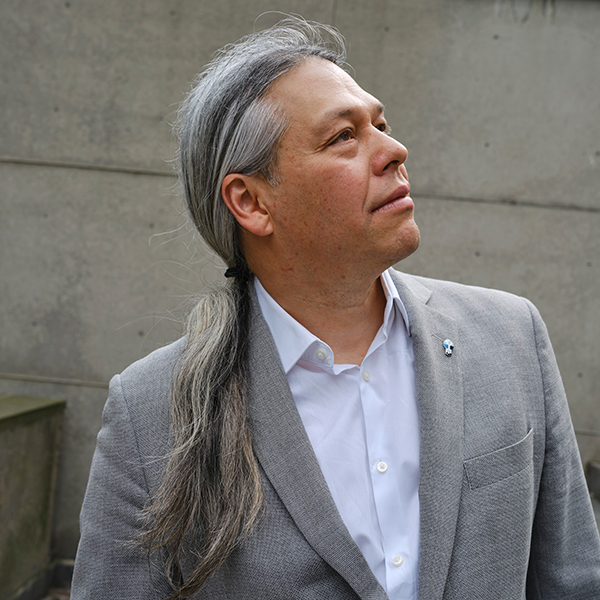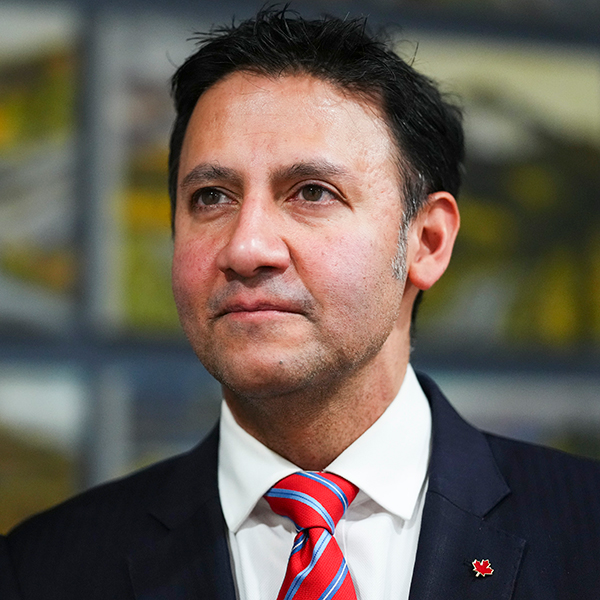Debra Thompson is committed to bringing academic ideas to the greater public.
An associate professor in McGill’s Department of Political Science, she is the Canada Research Chair in Racial Inequality in Democratic Societies.
She is also the host of the podcast series In/Equality, which launched last April.
In each episode of the podcast, Thompson hosts a discussion with an expert on an aspect of inequality, with a focus on Canada. The topics she covered in the first two seasons included homelessness, disability justice, and housing access. As the host, she works to create a conversation that is grounded in academic rigour but still engaging and approachable for her listeners, whom she calls “nerds, for lack of a better word. They want complicated, nuanced, empirical conversations about these topics.”
The podcast is put out by the Institute for Research on Public Policy (IRPP), an independent thinktank generating long-term research on policy issues facing Canadians and their governments.
Thompson spoke to the McGill News about inequality in Canada, why it’s important to create engaging shortcuts to educate the public, and the role that academics can play in helping to shape effective public policy.
Why is the podcast an interesting medium for you?
In recent years I’ve really begun to take a more public turn with my scholarship. It started with writing op-eds for The Globe and Mail. The articles that I wrote for The Globe got such traction – for good and for bad. I got a lot of hate mail, I got some death threats, and I also was able to bring those ideas to a broader public.
My second book [The Long Road Home: On Blackness and Belonging] has gotten some traction in academic circles, but it was largely meant for a wider audience.
And the podcast is a way to continue bringing these academic ideas – actual research, empirical data, facts, analyses – to a more general audience. I feel like in Canada we don’t have a ton of venues for that. If you’re interested in engaging people beyond the Ivory Tower, you have to do the work of trying to get your ideas out there.
I’m a mad consumer of podcasts. I love podcasts. I have a dog, I walk him all the time, I listen to podcasts. I assign podcasts in my classrooms. They’re so useful for getting complicated ideas across in a really nuanced yet accessible manner.
How do you find or choose your guest experts?
It’s literally what I’m thinking about. My research is on racial inequality, but there’s a lot I don’t know – that we all don’t know. You could fill rooms with what we all don’t know. So, it’s me wondering about various forms of inequality. The one that comes to mind is the housing affordability crisis right now. I don’t know a ton about it. I looked around to find who was writing interesting stuff on that topic.
Sometimes it’s something I’m curious about, sometimes something will come across my desk – this was the case with the book Jobs with Inequality, by John Peters [an associate professor at the Université de Montréal’s École de relations industrielles].
Some of it is from various strands of inequality that I feel aren’t getting a ton of attention. So, we spoke with [University of Ottawa political studies professor] Michael Orsini about disability justice. That I think is just such a problem. The way in which public policy fails to take heed of the various challenges of folks with disabilities.
So really there is no method, it’s just ‘what am I curious about,’ and then finding folks who are doing the research that speaks to inequality in particular, and everyone’s been really happy to come talk about their work.
You’ve spoken about the importance of making abstract public policy concepts more concrete. Is this a goal with the podcast?
I think the relationship between policy makers and academics is quite interesting. Policy makers are obviously experts in what they do, and they live in the details. The minute details of how policies are written, how they manifest, their dynamics, their consequences, the evaluation mechanisms we use to determine the successfulness of various policies. And because they are swimming in the details they frequently can’t think about the big picture.
Policy makers are busy, busy people, and they don’t have time to think about the big comparisons. People who are writing childcare policy in Ontario, I’m sure they do know quite a bit about different policy regimes, but do they have time to do an empirical analysis of the outcomes of different policy instruments across localities and provinces and countries? No. They don’t have time to do that.
That’s where academics come in. That’s our job – to think about the big picture. To create, to do empirical analyses, to think about the big questions. That’s literally our role in the world. So, I think if we can bring some of that big picture analysis to policy makers, to a broader public, that’s worthwhile.
I also think given we are in the era of mis- and dis-information. Bringing data and reliable, valid, peer-reviewed academic work to a broader audience, when there’s so much information that is just knee-jerk reactions and not based in fact, I think that’s a service. I really do see it as an important service to our country.
Do you see the podcast as a tool for challenging accepted mindsets and narratives to create dialogue?
I think people want to know more about the world, I believe that people are generally curious and generous in their intellectualism, so if we can create shortcuts for them to get nuanced, reliable, accurate understanding of these complicated issues, I think that’s quite important.
“Everybody has an opinion on race.I don’t have an opinion on race. I have 20 years of research on race. There is a difference.”
Debra Thompson
I live in the world of academics, and I write on race politics. Everybody has an opinion on race. Everybody has an opinion on race. I don’t have an opinion on race. I have 20 years of research on race. There is a difference. There’s a real difference between my life’s work and some dude on the street who’s just like, ‘Yeah diversity initiatives are giving preference to people who don’t deserve it.’ There’s a real difference in our takes on those issues. I think the more we have opinions that are based in research-fact analysis, the more informed the public is going to be. What we want is an educated public.
What’s next for the podcast?
We’ll talk to the IRPP folks about the next season, but I have a million more questions. I have a million ideas, because there are a million dimensions of inequality, unfortunately. And there are people working on all these issues, it’s just a matter of finding them and speaking to them.


